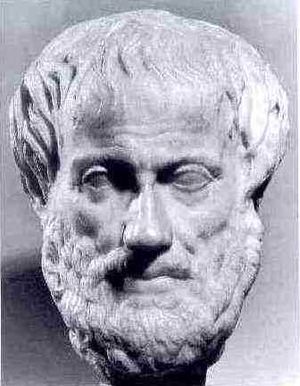Metaphysics

Metaphysics (Latin: metaphysica, from {Greek: μετά metá "after, behind, beyond", and φύσις phýsis "nature, natural condition") is a basic discipline of philosophy founded by Aristotle, which is oriented towards the speculative intellectual investigation of the ultimate causes and principles of the world, which as such are in principle inaccessible to sensory experience, but form its necessary precondition.
Aristotle describes the task of metaphysics as follows:
„There is a science that investigates being as being and that which is inherent to it. This science is not identical with any of the individual sciences; for none of the other sciences deals generally with being as being, but they delimit a part of being and investigate the determinations arising for it, as, for example, the mathematical sciences do. Now, by seeking the principles and highest causes, it is evident that these must necessarily be causes of a certain nature in themselves.“
General metaphysics is largely congruent with the field of ontology, the theory of being. More far-reaching questions, such as the nature of man, the freedom of will, the immortality of the soul or the existence of God, are traditionally dealt with within the framework of special metaphysics.
See also
- Metaphysics - Article in the English Wikipedia
- Category:Metaphysics - Article in the English Wikipedia
References
- ↑ The Roman numeral names the book (IV), the Arabic the section (1), followed by the page number according to Bekker (1003 a) and, in addition, the lines (21 - 28).
